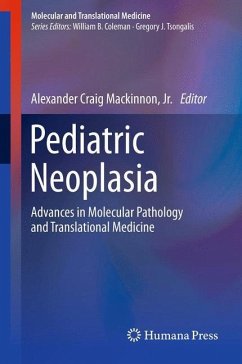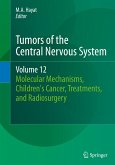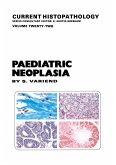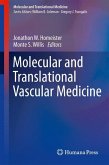Pediatric Neoplasia: Advances in Molecular Pathology and Translational Medicine presents many of the major, relevant advances in molecular pathology that are occurring in the field of pediatric oncology and will serve as a useful overview for resident and attending physicians as well as scientists interested in understanding the molecular pathology of pediatric cancer in the context of clinical medicine. Chapters are based upon organ systems, and each is written by an expert or pair of experts in their field with subspecialty training and extensive clinical experience. Each chapter describes a variable number of tumors and includes an overview of the classification system and clinicopathological characteristics of each tumor. This is followed by a discussion of the molecular pathology relevant to a specific tumor, including specific molecular markers of the tumors, methods used for diagnosis or clinical management, clinical significance of the markers, and if appropriate, a description or discussion of current activities in translational research or issues that need to be addressed in the future. Pediatric Neoplasia: Advances in Molecular Pathology and Translational Medicine will be of great value to pathologists, oncologists, hematologists, internal medicine and pediatric specialists, as well as pharmaceutical professionals and translational and clinical researchers.
From the reviews:
"This book outlines the diagnosis of pediatric neoplasms including morphology, immunophenotypic, and up-to-date molecular testing. ... Students, residents, and practitioners in pathology and laboratory medicine as well as specialties related to pediatric oncology will find this book very useful. ... The book is appealing because it is concise, well organized and easy to read and search through. ... This is a handy book. It approaches the most recent updates in complex molecular aspects of pediatric tumors in a straightforward fashion." (Lamis Shatat, Doody's Review Service, January, 2013)
"This book outlines the diagnosis of pediatric neoplasms including morphology, immunophenotypic, and up-to-date molecular testing. ... Students, residents, and practitioners in pathology and laboratory medicine as well as specialties related to pediatric oncology will find this book very useful. ... The book is appealing because it is concise, well organized and easy to read and search through. ... This is a handy book. It approaches the most recent updates in complex molecular aspects of pediatric tumors in a straightforward fashion." (Lamis Shatat, Doody's Review Service, January, 2013)








